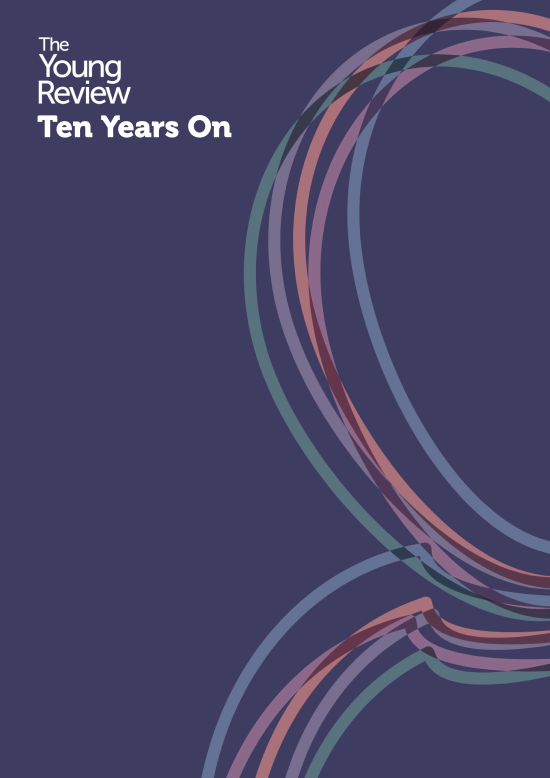In this Clinks Guest Blog Lisa Rowles, Design & Development Lead for Khulisa, makes the case for a fully restorative prison.
Our prisons are undergoing significant and unprecedented change. The government’s Transforming Rehabilitation agenda has put the prison estate under considerable pressure to reduce cost, restructure and still deliver against increased targets. Add to this the impending smoking ban in prisons and further delays in the electronic tagging system (due to provide greater alternatives to incarceration), and the picture is increasingly bleak.
However, these factors only reinforce the argument for a restorative prison culture. With the introduction of EE’s (Enabling Environments) and PIPE’s (Psychologically Informed Planned Environments), the timing has never been better to introduce a restorative approach to specific landings and wings, that can ultimately be replicated across the whole prison. Staff surveyed in a recent PIPE pilot1 indicated that prisoners appeared to take greater responsibility for their actions and behaviour, were recalled less and demonstrated increased compliance with licence conditions. Restorative skills enable staff to work with the offender - increasing personal responsibility and developing skills, which in turn improves wellbeing and related outcomes (eg. reduced substance misuse, engagement in education).
Prison staff play a vital role as the prison authority and are actually in the strongest position to encourage a shift in offender perspective. They have the power to both reinforce an inmates’ mind-set and to radically challenge it – this is a potential game changer for rehabilitation. We believe that a restorative relationship between staff and prisoner offers the opportunity for increased offender accountability, and the real likelihood of transforming lives – in prison and through the gate.
Using a restorative practice model and applying it to the entire prison population would increase understanding between staff and offenders, enhance wellbeing of offenders and inevitably decrease the prospect of violent incidents. This would create a more stable, safe, secure environment, fostering a greater likelihood of desistance from crime and enabling prisoners to become contributing members of society.
For staff, the benefits would be tangible through improved relationships and a reduction in violent altercations, adjudications and prisoner self-harming. Moreover it would reduce stress and improve morale, which in turn reduces sickness absence. We believe there are good cost incentives to this model.
For prisoners, this approach and ethos inevitably enables calmer conversations on wings and improved prisoner self-awareness and coping skills, encouraging proactive engagement in interventions and support mechanisms.
Outside of custodial settings restorative approaches have shown significant impact when implemented systemically as opposed to a ‘bolt-on’ intervention. Best practice examples exist in both children’s homes2 and, within police forces3 many with direct outcomes linked to improved education and reduced crime. All the evidence suggests that this could be an effective low cost model for transforming rehabilitation. Watch this space!
About Lisa and Khulisa
Khulisa is a national charity dedicated to cutting crime and reducing reoffending. Lisa Rowles, Design and Development Lead at Khulisa, has worked in a number of prisons, YOIs, schools and community projects to build stronger and safer communities.
Lisa can be contacted at lrowles@khulisa.co.uk
Lisa has undertaken a Streetcraft Scholarship with the support of the Centre for Justice Innovation and Clinks - find out more about her project here
References:
- MOJ: NOMS (2013 ) ‘Enabling features of Psychologically Informed Planned Environments’. Information at https://www.gov.uk/government/publications/enabling-features-of-psychol…- planned-environments
- Hannah, B (2012) ‘Restorative Approaches in Norfolk Council’. Norfolk County Council, http://www.norfolk.gov.uk/view/NCC127049
- Meadows, Linda, Albertson, Katherine, Ellingworth, Daniel and Senior, Paul (2012) Evaluation of the South Yorkshire Restorative Justice programme (SYRJP). Project Report. Sheffield Hallam University, Sheffield.
What's new
Blogs
Homelessness Strategy Blog
Publications
The Young Review - 10 Years On
Latest on X
The role is for a leader from an organisation focused on racially minoritised people, with expertise in service delivery, policy, advocacy, or related areas in criminal justice. Racial disparities are present at every CJS stage. This role ensures these voices are central in shaping policy to help address and eradicate them. Apply by Mon 18 Nov, 10am. More info: https://www.clinks.org/voluntary-community-sector/vacancies/15566 #CriminalJustice #RR3 #RacialEquity

